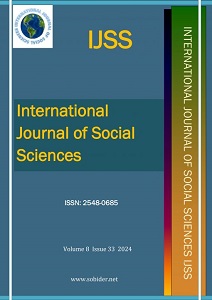Eğitim Siyasasının Yapılandırılması Formülasyonunda Karar Verme (Decision-Making) Modelleri
Decision-Making Models in the Formulation of the Structuring of Education Policy
Author(s): Erdoğan Ergin, Alev Sinoğlu, Haydar AkbaşSubject(s): Education, State/Government and Education, Policy, planning, forecast and speculation, Sociology of Education
Published by: SD Yayınevi
Keywords: Education Policy; Structuring Formulation; Decision-Making Models;
Summary/Abstract: The decision-making process in education policy making begins with the raising of an education-related problem, which is often the first step towards the legislative process. In this regard, the decision-making process focuses on how the proposals included in the policy agenda will be implemented and with what strategies they can be implemented. Again, qualified information obtained from the policy analysis department can directly affect decisionmaking mechanisms. However, it is decided by adding cultural, social, economic and other dynamics of society in order to decide on the policy alternative that will be included in the policy agenda. There are basically several different approaches and models for the realization of the decision-making function. The first of these is the rational model, the other is the Deconstructive model, and finally the mixed models that provide a compromise between these two. As a result of the formulation phase in the education policy process within this framework, a set of laws or rules may not always be formed. In some cases, legislators and decision makers may not consider the formulated considerations appropriate. Any formulated issue can be delayed by spreading over time and can be suspended due to different situations. Therefore, the solutions formulated for the solution of any problem do not mean that the problem has been completely solved. In some cases, the general managerial will may not consider problems that are formulated very effectively appropriate for different and dysfunctional reasons. This is an indication that even if the problem is very important and is very important by different groups, it may fall off the agenda over time.
Journal: Uluslararası Sosyal Bilimler Dergisi
- Issue Year: 8/2024
- Issue No: 33
- Page Range: 155-167
- Page Count: 13
- Language: Turkish

